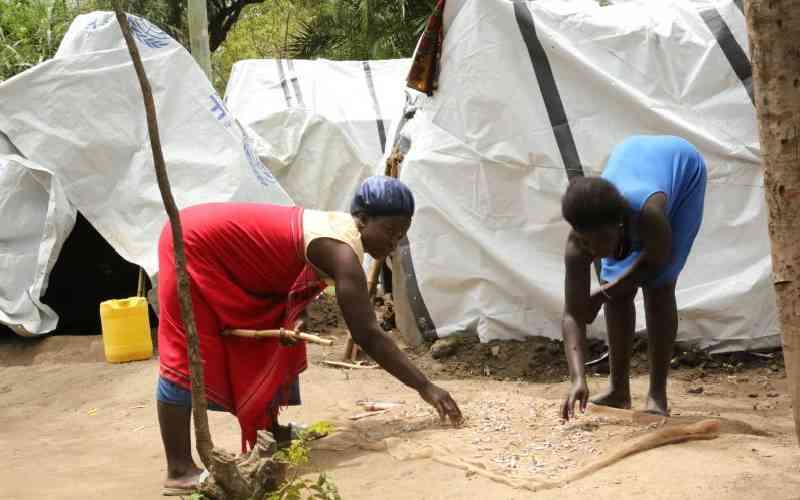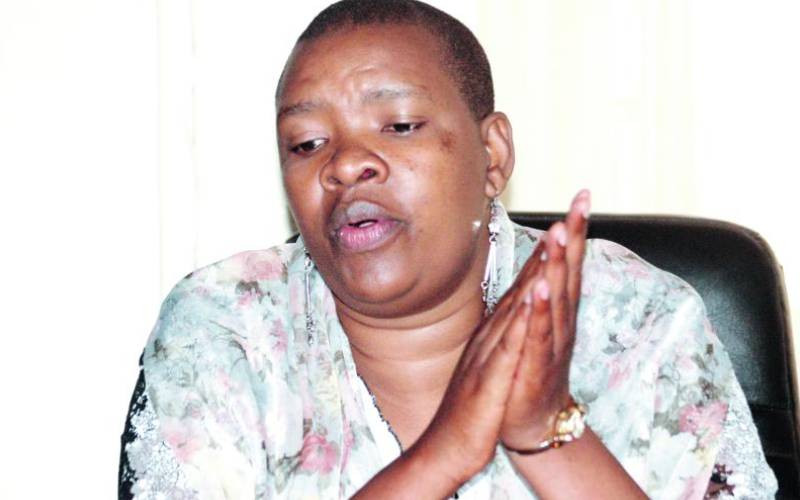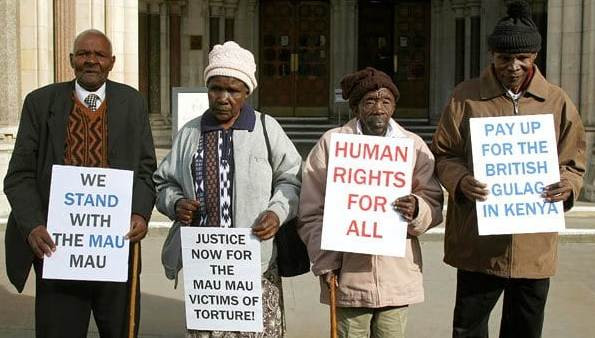As Christmas approaches, the celebration mood is high, cities are being transformed into a kaleidoscope of colors and twinkling lights. The air is filled with the joyous melodies of carols, creating a festive atmosphere that contrasts sharply with the struggles of the street families.
For various reasons, these are peoples who found themselves living on the unforgiving streets, forming bonds of survival in the face of adversity. They are left to navigate the harsh streets in search of a semblance of home, a home that come with lots of regrets.
On the streets of Nairobi, I met Bernard Irungu, a 68 old man who yearns to being surrounded by grandchildren but the reality of life has only left him the title of “chokora”. Irungu has been surviving on streets for the last twenty six years. His sad tale dates back to his thirties when drugs took a twist of his life, he became an addict of bhang and alcohol, lost his job, family and streets became his consolation.
For all these years his Christmas has always been spiced up by well-wishers who offer him food and clothes but this year, he has noted a drastic drop of support due to the tough economy that is seriously ravaging most of the organizations. Irungu confirms that the number of charity visits has dropped to either twice or once a week.
“Previously, we used to receive food at least thrice a week or even on a good week it could be four times but now it’s unpredictable, it’s either twice or once worse of the portions have reduced. Sometimes some miss out due to the daily swelling number of street family, I’m even afraid if we would be fed on Christmas,” says Irungu who wishes to be rescued from the cold soon before he dies.
Mixed emotions
The same applies to Mary, a young woman who had lost her parents at a tender age and had since lived with her younger siblings on the unforgiving streets of Nairobi. The holiday season always brings a mix of emotions to her. On one hand, she yearns for the warmth and comfort of a traditional Christmas celebration; on the other, the harsh reality of their circumstances looms large.
- 13-year-old living in hospital since 2021 tragic gun attack
- Activate our NHIF cards, retired prison wardens plead
- Greg Ngari: Rare disease has only delayed my dreams, it did not shatter them
- Vape at your own risk
Keep Reading
Unlike the rest of the city's residents, Mary and her makeshift family have no home to decorate, no table to set for a festive meal, and no gifts to exchange. Their daily struggle for survival overshadows any anticipation for the holiday season. As December advances, the chances of partaking in the joyous festivities dwindle.
The local community, immersed in its own celebrations, seldom spares a thought for the street families. Business owners, despite their best intentions, are also busy focusing on their own seasonal rush. The load is now left to charities, who are overwhelmed with the swelling number of people in need, they admit to find it increasingly challenging to extend their support to everyone.
Dwindling support
On a seat down with Peter Nduati, one of the well-wishers who runs an organization called I. Africa, he admits to be facing hard times and a struggle to keep afloat. He reveals that amongst some of the programs they had dropped was medical support for street families and the weekly porridge program, which was so vital to the families.
“Every Christmas we run a campaign dubbed 'Peleka Mtoto Nyumbani', where we facilitate the travel for reformed street families to reconcile with their families but this year we had to cut it off. We have also stopped gifting them clothes and we were forced to reduce the number from feeding eight hundred families to three fifty which was quite painful and a difficult decision to make.”
Peter adds that most of the parties that used to in handy in with them dropped the support immediately the economy became a headache. "Last year there were a lot of volunteers but come this year the street became too silent, only a few could afford to make the family happy. As Christmas approaches there’s less hope.’
This was also echod by Sonny Owino, a well-wisher who says the tough economy has left them hepless as they are forced to subdivide street families. “The feeding program has totally changed, we now feed them in portions. Those who are likely to get food this week won’t be part of next week program. We have also stopped buying them clothes as Christmas gifts.”
He adds that they will only organize for talent event where they will show case there talents, like singing competition, playing football and it will mark the end of their Christmas.
Elusive joys
Lack of access to basic amenities and the constant battle for survival means that even the simplest joys of the season – a warm meal, a kind word, or a moment of respite – remains elusive for the street families. Their marginalized existence makes it difficult to break free from the cycle of poverty and despair, trapping them in a perpetual struggle against an indifferent world.
To Mary Luchula, distant sounds of laughter and celebrations will only serve as a stark reminder of a life she could only dream of. As the streetlights flicker overhead, she only wishes for her death to happen soon.
In the quiet moments of the night, she hopes against hope that someday, the world would acknowledge the presence of those forgotten on the streets. Until then, the street families of Nairobi would continue to miss out on the joyous celebrations, their existence hidden beneath the glitz and glamour of a city that had yet to learn the true meaning of compassion and inclusivity.
"As we know, we are already in the festive season and everyone is thinking about how to treat their loved ones and in the midst of all this, no one thinks about us. We are just left to watch.”
“We ladies especially if you go to public facilities like Pumwani or Mama Lucy and you are about to deliver, you are chased away because we have no IDs or health care cards to cutter for us," Mary stated. She is pleading with the government to make that their Christmas gift.
 The Standard Group Plc is a multi-media organization with investments in media platforms spanning newspaper print
operations, television, radio broadcasting, digital and online services. The Standard Group is recognized as a
leading multi-media house in Kenya with a key influence in matters of national and international interest.
The Standard Group Plc is a multi-media organization with investments in media platforms spanning newspaper print
operations, television, radio broadcasting, digital and online services. The Standard Group is recognized as a
leading multi-media house in Kenya with a key influence in matters of national and international interest.











